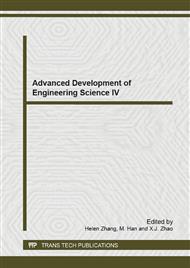p.196
p.200
p.205
p.209
p.215
p.219
p.223
p.227
p.232
Energy Optimal Control of Induction Motor for Electric Vehicle Drive System Base DTC
Abstract:
The requirements of the drive system for electric vehicle is high efficiency and fast dynamic response, an optimal control method base direct torque control is proposed to improve respose speed of energy optimal controlled induction motor. In stator flux orientation coordinate system, the loss mathematical model of the induction motor was established by analyzing the relationship between loss and motor torque, speed and stator flux, then the optimal stator flux formula is derived under different operating conditions to achieve the maximum efficiency of induction motor, the getted optimal stator flux is used as stator flux set value in DTC. Simulation results reveal that the proposed method improve the efficiency and respose spee of induction motor.
Info:
Periodical:
Pages:
215-218
DOI:
Citation:
Online since:
October 2014
Authors:
Price:
Сopyright:
© 2014 Trans Tech Publications Ltd. All Rights Reserved
Share:
Citation:


